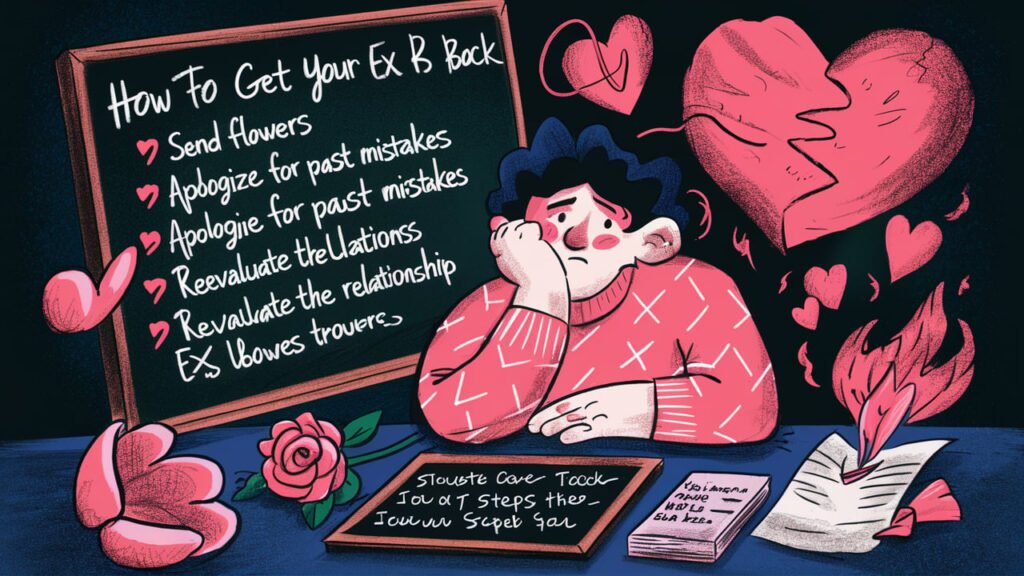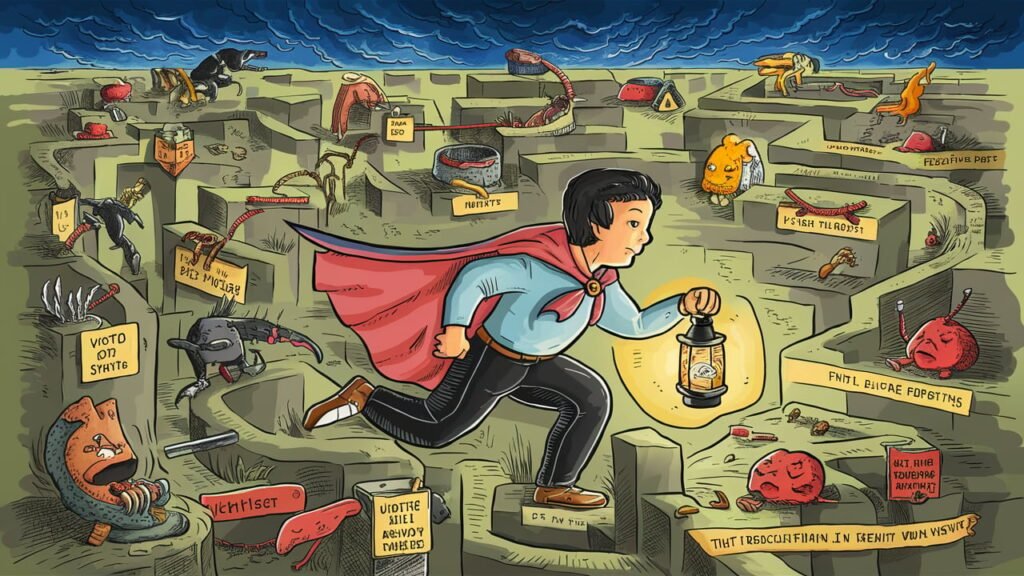Breakups can feel like the end of the world, leaving you with a whirlwind of emotions and a desperate desire to reconnect with your lost love. The journey to rekindling a relationship is rarely straightforward, but with the right approach, it’s possible to not only get your ex back but also build a stronger, more resilient bond. In this comprehensive guide, we’ll explore the intricacies of reconciliation, from understanding what went wrong to taking concrete steps towards reuniting with your former partner. Whether you’re seeking closure or a second chance, this article will provide you with valuable insights and actionable strategies to navigate the complex terrain of love and relationships.
The Psychology of Breakups: Understanding What Went Wrong

Breakups are rarely simple, and understanding the psychology behind them is crucial for anyone hoping to reconcile with an ex-partner. By delving into the reasons for your split, you can gain valuable insights that will guide your path forward.
Common Reasons for Breakups
Relationships end for a myriad of reasons, but some are more common than others:
- Communication breakdown
- Trust issues
- Infidelity
- Growing apart
- External stressors (e.g., work, family)
Identifying the root cause of your breakup is the first step towards addressing the issues that led to the separation. It’s essential to be honest with yourself about your role in the relationship’s demise, as this self-awareness will be crucial for personal growth and potential reconciliation.
Emotional Stages After a Breakup
Following a breakup, most people experience a range of emotions similar to the stages of grief:
- Shock and denial
- Pain and guilt
- Anger and bargaining
- Depression and loneliness
- Acceptance and hope
Understanding these stages can help you navigate your emotions more effectively and recognize when you’re ready to consider reconnecting with your ex. It’s important to give yourself time to process these feelings rather than rushing into reconciliation attempts prematurely.
Self-Reflection and Personal Growth
The period following a breakup provides a unique opportunity for self-reflection and growth. Take this time to:
- Evaluate your personal values and relationship goals
- Identify patterns in your past relationships
- Work on self-improvement and addressing personal issues
By focusing on your own development, you not only become a better potential partner but also gain clarity on what you truly want in a relationship. This personal growth is attractive and can significantly improve your chances of reconnecting with your ex on a deeper level.
Assessing Your Situation: Is Getting Back Together the Right Move?

Before diving headfirst into trying to win back your ex, it’s crucial to assess whether reconciliation is truly the best option for both of you. This step requires honest self-reflection and a clear-eyed view of your past relationship.
Signs That Reconciliation Might Be Possible
Look for these positive indicators that suggest a reunion could be on the horizon:
- Mutual feelings of respect and fondness
- Shared willingness to work on issues
- Positive changes in behavior or circumstances since the breakup
- Continued communication or friendship
If you notice these signs, it might be worth exploring the possibility of getting back together. However, it’s important to approach the situation with caution and realistic expectations.
Red Flags to Consider
Be wary of these warning signs that suggest reconciliation might not be advisable:
- Ongoing trust issues or unresolved conflicts
- Incompatible core values or life goals
- Patterns of abuse or toxic behavior
- One party has moved on or is in a new relationship
If these red flags are present, it may be healthier to focus on moving forward separately rather than attempting to rekindle the relationship.
Weighing the Pros and Cons
Create a list of pros and cons for getting back together. Consider factors such as:
- Emotional fulfillment
- Shared history and understanding
- Potential for personal growth
- Impact on other relationships (friends, family)
- Long-term compatibility
This exercise can provide clarity and help you make a more rational decision about pursuing reconciliation. Remember, the goal is not just to get back together, but to create a healthier, happier relationship than before.
Discover the Power of Love Spells – Unlock Your Heart’s Desires!
The No-Contact Rule: Why It’s Crucial for Reconciliation

The no-contact rule is a widely recommended strategy for those looking to reconnect with an ex. This approach involves cutting off all communication for a set period, typically 30 to 90 days. While it may seem counterintuitive, this period of silence can be incredibly beneficial for both parties.
Benefits of the No-Contact Period
Implementing the no-contact rule offers several advantages:
- Emotional healing and clarity
- Time for both parties to miss each other
- Opportunity for personal growth and self-improvement
- Restoration of personal boundaries
- Increased attractiveness through perceived independence
This period allows both you and your ex to gain perspective on the relationship and your feelings for each other. It can also help break unhealthy patterns of communication or dependency that may have contributed to the breakup.
How to Implement the No-Contact Rule Effectively
To make the most of the no-contact period:
- Set a clear start date and duration
- Block or mute your ex on social media
- Inform mutual friends about your decision to avoid accidental contact
- Remove or hide reminders of your ex from your daily environment
- Establish a support system of friends or family
Stick to your commitment even if it feels challenging. Remember that the goal is to create space for healing and growth, not to punish your ex or yourself.
What to Do During the No-Contact Period
Use this time productively to focus on your own well-being and personal development:
- Engage in self-care activities
- Pursue hobbies or interests you may have neglected
- Set and work towards personal goals
- Reconnect with friends and family
- Seek therapy or counseling if needed
By investing in yourself during this period, you’ll not only heal from the breakup but also become a more attractive and well-rounded individual, regardless of the outcome with your ex.
Working on Yourself: Becoming the Best Version of You

One of the most crucial steps in the journey to win back your ex is focusing on self-improvement. By becoming the best version of yourself, you not only increase your chances of reconciliation but also set yourself up for a happier, more fulfilling life regardless of the outcome.
Personal Development Strategies
Implement these strategies to foster personal growth:
- Set clear, achievable goals for various aspects of your life
- Develop new skills or enhance existing ones
- Practice mindfulness and emotional intelligence
- Improve your physical health through exercise and nutrition
- Read self-help books or attend personal development workshops
Remember, the aim is to grow for your own sake, not just to impress your ex. Authentic personal development will naturally make you more attractive to others, including your former partner.
“Feeling Lost? Discover Answers at Our Psychic Shop Today!”
Building Self-Confidence
Confidence is key in both personal and romantic success. Here are some ways to boost your self-esteem:
- Practice positive self-talk and affirmations
- Celebrate your achievements, no matter how small
- Step out of your comfort zone regularly
- Surround yourself with supportive people
- Dress in a way that makes you feel good about yourself
As your confidence grows, you’ll find yourself better equipped to handle the challenges of reconciliation or moving on, whichever path you ultimately choose.
Cultivating New Interests and Hobbies
Expanding your horizons can make you more interesting and fulfilled:
- Try out new activities or classes
- Travel to new places, even if it’s just local exploration
- Join clubs or groups related to your interests
- Learn a new language or instrument
- Volunteer for causes you care about
Developing new passions not only makes you more well-rounded but also provides opportunities to meet new people and gain fresh perspectives on life.
Rekindling Communication: How to Reach Out to Your Ex

After the no-contact period, if you still feel that reconciliation is the right path, it’s time to consider reaching out to your ex. This step requires careful planning and execution to maximize your chances of a positive response.
Timing Your First Contact
Choosing the right moment to reach out is crucial:
- Ensure you’ve given enough time for emotions to settle
- Avoid contacting during high-stress periods (e.g., exams, work deadlines)
- Consider reaching out on a neutral day, avoiding anniversaries or holidays
Trust your instincts, but also be mindful of any information you might have about your ex’s current situation. The goal is to make contact when both of you are likely to be in a calm, receptive state of mind.
Crafting the Perfect Message
Your initial message should be thoughtful and purposeful:
- Keep it light and positive in tone
- Reference a shared positive memory or inside joke
- Ask an open-ended question to encourage response
- Avoid discussing the breakup or heavy topics
- Be brief and leave room for curiosity
Here’s an example: “Hey [Ex’s name], I just passed by that quirky coffee shop where we had our first date. It made me smile thinking about how you almost spilled your latte all over yourself. How have you been?”
Handling Different Response Scenarios
Be prepared for various reactions:
- Positive response: If your ex responds warmly, continue the conversation naturally, but don’t rush into serious discussions.
- Neutral response: If the reply is polite but distant, respect their boundaries and don’t push for more immediate connection.
- Negative response or no response: If your ex reacts negatively or doesn’t respond, respect their wishes and give them more space.
- Mixed signals: If you receive confusing or inconsistent responses, take things slow and focus on rebuilding a friendship first.
Remember, the goal of this initial contact is simply to reopen the lines of communication, not to immediately jump back into a relationship.
Rebuilding Trust and Connection: Steps to Strengthen Your Bond

If your ex is receptive to communication, the next phase involves rebuilding trust and strengthening your connection. This process requires patience, consistency, and genuine effort from both parties.
Open and Honest Communication
Effective communication is the cornerstone of any healthy relationship:
- Practice active listening without interrupting
- Express your thoughts and feelings clearly and calmly
- Be vulnerable and share your hopes and fears
- Avoid blame and use “I” statements instead of “you” statements
- Be open to feedback and willing to compromise
Creating a safe space for open dialogue will help both of you feel heard and understood, paving the way for a stronger connection.
Addressing Past Issues
To move forward, it’s essential to address the problems that led to your breakup:
- Acknowledge your role in past conflicts
- Discuss how you’ve worked on yourself during the time apart
- Share the lessons you’ve learned and how you plan to apply them
- Be willing to forgive and ask for forgiveness when appropriate
- Develop strategies together to prevent similar issues in the future
Tackling these topics demonstrates maturity and commitment to personal growth, which can significantly boost your chances of successful reconciliation.
Creating New Positive Experiences Together
While addressing the past is important, it’s equally crucial to create new, positive memories:
- Plan fun and lighthearted activities together
- Try new experiences that neither of you has done before
- Revisit places that hold happy memories for both of you
- Engage in acts of kindness and surprise each other occasionally
- Set and work towards shared goals
Building these new experiences helps to reframe your relationship in a positive light and creates a foundation for a renewed connection.
Avoiding Common Mistakes: What Not to Do When Trying to Get Your Ex Back

In the quest to reconcile with an ex, it’s easy to fall into counterproductive behaviors. Avoiding these common pitfalls can significantly improve your chances of success and maintain your dignity in the process.
Begging or Pleading
Desperation is rarely attractive and can push your ex further away:
- Avoid multiple texts or calls if they’re not responding
- Don’t make grand gestures of love without reciprocation
- Refrain from emotional manipulation or guilt-tripping
- Maintain your self-respect and independence
Remember, a healthy relationship is based on mutual desire and respect, not on coercion or pity.
Manipulative Tactics
Using underhanded methods to win back your ex can backfire:
- Don’t try to make them jealous by flaunting new relationships
- Avoid spreading rumors or gossiping about them
- Refrain from using mutual friends to gather information or send messages
- Don’t pretend to be someone you’re not to impress them
These tactics may seem tempting in the short term, but they ultimately undermine trust and respect, making reconciliation more difficult.
Rushing the Process
Patience is key when trying to rebuild a relationship:
- Don’t push for commitment too quickly
- Avoid pressuring your ex to define the relationship status
- Refrain from moving too fast physically or emotionally
- Don’t ignore your own healing process in pursuit of reconciliation
Allow the relationship to develop naturally, giving both of you time to rebuild trust and ensure that you’re reconnecting for the right reasons.
Alternative Perspectives: Exploring Different Approaches to Reconciliation

While traditional methods of reconciliation are widely practiced, some individuals seek alternative approaches to understand and potentially rekindle their relationships. It’s important to approach these options with an open mind while maintaining a healthy skepticism.
Seeking Professional Help
Professional guidance can provide valuable insights:
- Couples therapy or individual counseling
- Relationship coaching
- Mediation services for complex situations
These professional services offer structured support and expert advice to navigate the complexities of reconciliation. While some may seek guidance from psychic services or tarot love readings to gain clarity on their situation, it’s crucial to approach such options with caution and prioritize evidence-based methods for relationship healing.
Exploring Personal Growth Techniques
Various personal development methods can contribute to relationship healing:
- Mindfulness and meditation practices
- Emotional intelligence workshops
- Self-help books and online courses
These techniques can help you gain a deeper understanding of yourself and your relationship patterns, potentially facilitating reconciliation or personal growth. While some may be tempted by promises of extra strong love binding spells to bring an ex back, it’s essential to focus on authentic personal development and honest communication as the foundation for rebuilding a relationship.
Embracing New Perspectives
Sometimes, gaining a fresh outlook can be beneficial:
- Travel or new experiences to gain perspective
- Talking to friends who have successfully reconciled
- Reading relationship success stories for inspiration
Exploring different viewpoints can help you approach your situation with renewed energy and insight, whether you ultimately reconcile or choose to move forward separately.
Moving Forward: Whether You Reconcile or Not

Regardless of the outcome of your reconciliation efforts, it’s crucial to focus on personal growth and emotional well-being. This final section will guide you through accepting the outcome and embracing new beginnings.
Accepting the Outcome
Whether you’ve successfully rekindled your relationship or realized it’s time to move on, acceptance is key:
- Acknowledge your feelings without judgment
- Practice gratitude for the experiences and lessons learned
- Allow yourself time to process the outcome
- Seek support from friends, family, or professionals if needed
Remember that accepting the outcome doesn’t mean you’ve failed; it means you’re ready to grow from the experience.
Lessons Learned from the Experience
Every relationship, whether it continues or ends, offers valuable lessons:
- Reflect on what you’ve learned about yourself
- Identify patterns in your relationships and communication style
- Recognize your strengths and areas for improvement
- Understand your needs and boundaries in relationships
These insights will serve you well in future relationships, romantic or otherwise.
Embracing New Beginnings
Regardless of the outcome, focus on creating a positive future for yourself:
- Set new personal and professional goals
- Explore interests and hobbies that bring you joy
- Cultivate meaningful friendships and social connections
- Stay open to new romantic possibilities when you’re ready
Remember, the end of one chapter is the beginning of another. Embrace the opportunity for growth and new experiences.
Conclusion
The journey of trying to get your ex back is often challenging and filled with uncertainty. Whether you succeed in reconciling or discover that it’s time to move on, the process of self-reflection and personal growth is invaluable. By focusing on understanding the reasons behind the breakup, implementing the no-contact rule, working on self-improvement, and approaching reconciliation with maturity and open communication, you set yourself up for a positive outcome – either a stronger, renewed relationship or the strength to embrace a new chapter in your life.
Remember that true love and healthy relationships are built on mutual respect, trust, and genuine connection. While the allure of quick fixes or mystical solutions may be tempting, the most reliable path to lasting happiness – with or without your ex – lies in authentic personal growth and honest communication.
As you move forward, carry with you the lessons learned, the strength gained, and the self-awareness developed. Your journey doesn’t end here; it’s just beginning. Embrace the possibilities that lie ahead, and trust that the right path will reveal itself as you continue to grow and evolve.
FAQ
How long should I wait before trying to get my ex back?
It’s generally recommended to wait at least 30 days before initiating contact. This period allows both parties to process emotions and gain perspective. However, the ideal duration can vary depending on the circumstances of your breakup and individual healing processes.
Is it possible to get my ex back if they’re seeing someone new?
While it’s possible, it’s important to respect your ex’s current relationship. Focus on your own growth and healing. If their new relationship doesn’t work out, you’ll be in a better position to reconnect. Remember, trying to interfere with their new relationship is likely to backfire.
What if my ex doesn’t respond to my initial contact?
If your ex doesn’t respond, respect their decision and give them space. Don’t bombard them with messages. Instead, continue focusing on your own personal growth. They may reach out when they’re ready, or you may realize it’s time to move on.
How can I tell if my ex wants to get back together?
Look for signs such as frequent communication, reminiscing about positive memories, showing interest in your life, or expressing regret about the breakup. However, the only way to know for sure is through open and honest communication about your feelings and intentions.
Should I tell my ex I’ve changed?
Instead of telling them you’ve changed, show them through your actions. Consistent behavior over time is more convincing than words. If the topic comes up naturally in conversation, you can discuss the personal growth you’ve experienced.
Is it a good idea to stay friends with my ex if I want them back?
Maintaining a friendship can be a double-edged sword. While it keeps the lines of communication open, it can also make it harder to move on or rekindle romantic feelings. If you choose to be friends, be honest with yourself about your intentions and set clear boundaries.
What if I realize I don’t want my ex back after all?
It’s completely normal for feelings to change as you go through the process of healing and self-reflection. If you realize you don’t want to reconcile, honor those feelings. Focus on closure, personal growth, and opening yourself to new possibilities and relationships.
Remember, while these answers provide general guidance, every relationship is unique. Trust your instincts, prioritize your well-being, and don’t be afraid to seek professional advice if you’re struggling with the reconciliation process.
